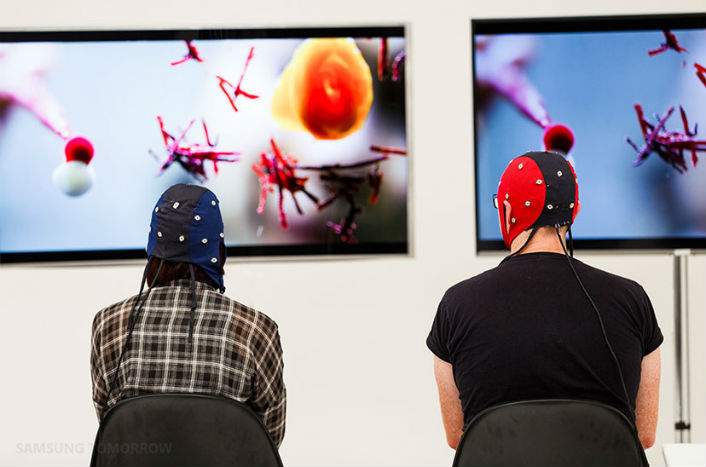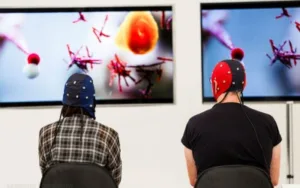Samsung commissioned a study by Mindlab International at the Sussex Innovation Centre in the UK that appears to have shown that UltraHD images are measurably “more immersive” than HD content (although sound was also different). 24 participants (12 male and 12 female) from 18 to 65 were measured with EEG (electroencephalography), EDA (Electrodermal activity) and heart rate monitors. They were shown HD and UHD content from a European football match and from streaming service Netflix (Sense8 and Chef’s table).
According to Samsung, the UHD TV was 38% more immersive than watching on FullHD.
 As this image from Samsung shows, the TVs were set up very differently – it was not just about resolution.
As this image from Samsung shows, the TVs were set up very differently – it was not just about resolution.
Analyst Comment
Samsung’s own image of the test installation shows that the colour and brightness of the two screens shown were very different. We suspect, then, that any boost in immersiveness reflected not only the resolution, but the QD colour gamut and HDR brightness of Samsung’s SUHD sets. I’m very positive about getting data and science to back up technology claims, but this particular exercise has not been, as far as we aware, peer-reviewed or published in a science journal. The neuropsychologist behind the tests, Dr David Lewis said that UHD represents a “quantum leap” in terms of viewing experience. As he is a scientist, perhaps he was using the term in its scientific meaning, rather than the commonly used meaning! (BR)

